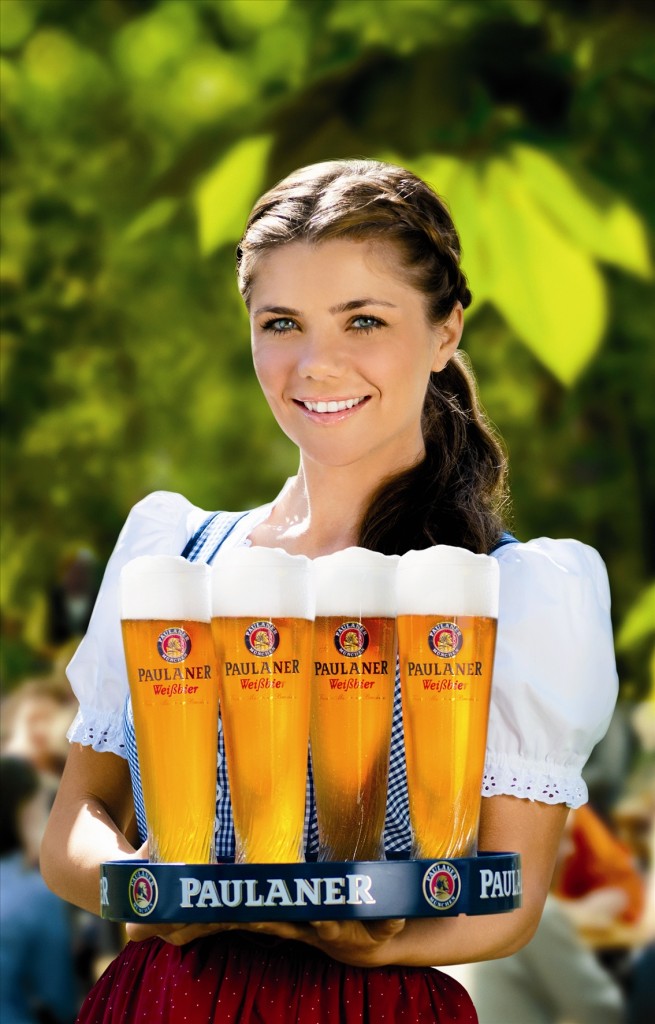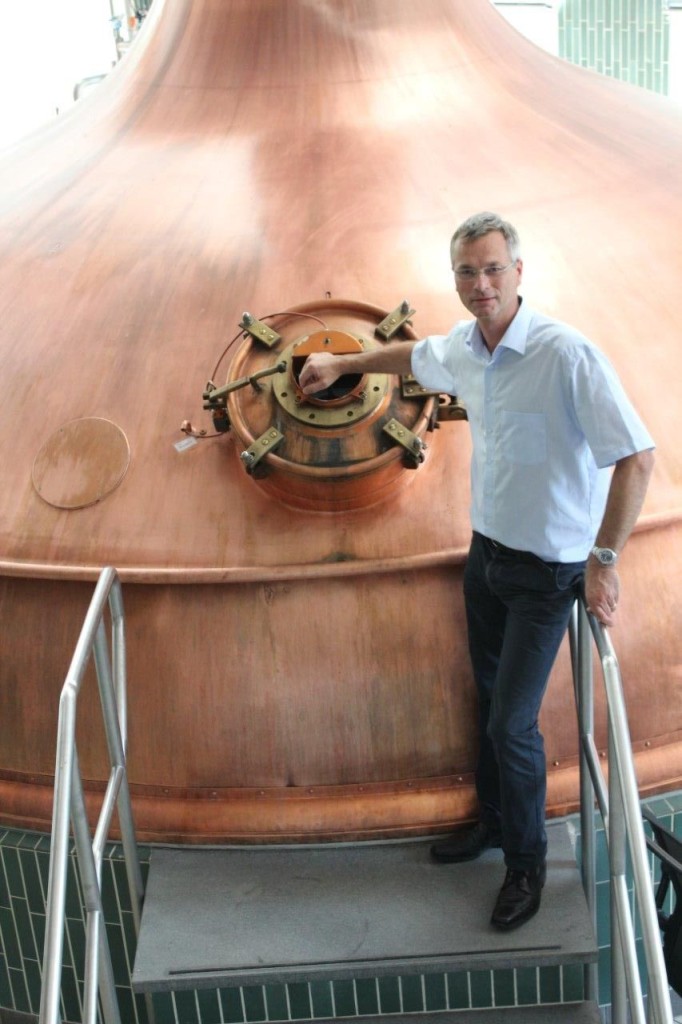
The Bavarian beer speciality is enjoying a rise in popularity around the globe. Paulaner explains the wheat beer phenomenon.
Munich, August 2013 – Bavaria’s traditional wheat beer began its remarkable success story in the 1980s. Initially misjudged as a regional peculiarity, it now enjoys huge popularity far beyond Bavaria and Germany right around the world. Connoisseurs consider it the premium alternative to dominant American light lager beers. This success is due in no small part to the master brewers of Munich’s long-established Paulaner brewery.
From a Bavarian niche product to a global bestseller
Just a few decades ago, wheat beer was deemed to be something of a rarity even in its Bavarian homeland – and it was virtually unknown in other parts of Germany. This was down to its limited shelf life which made transportation over long distances impossible. The 400-year-old Paulaner Brewery, with its headquarters in Munich, was one of the breweries to pioneer new methods of transportation while maintaining high standards of quality. Today, the brewery leads the way in the production of wheat beer. It was here, in fact, that wheat beer was first transferred into barrels, thus making transportation possible. Demand has been rising steadily since then and Paulaner beer specialities are now available in over 70 countries around the globe. Moreover, over 20 Paulaner brewery pubs have so far been established abroad, all of which have had microbreweries specially imported from Germany. These pubs transport Bavarian zest for life all over the world, inviting guests to indulge in the wonderfully crisp, distinctively smooth, mild and fruity beverage. Wheat beer is traditionally drunk out of tall glasses that are wider at the top. This ensures that the effervescent bubbles rise slowly and allows the charismatic aroma to blend perfectly with the wheat beer flavour. The correct pouring technique, which guests always find fascinating, produces a creamy white head on the amber-coloured, unfiltered and thus cloudy wheat beer.
The Paulaner recipe for success: passion and top quality
Wheat beer is not only very different from mainstream lagers in its flavour and appearance, but also in its production process. Nowadays, many breweries place an emphasis on monitoring their production processes. At Paulaner, however, more than 30 master brewers are employed to taste every batch personally. “Unlike wine tasting, beer actually has to be drunk in order to assess the effects of its freshness in the back of the throat,” explains Martin Zuber, Paulaner master brewer and qualified beer sommelier. “We pour all of our knowledge and enjoyment of beer brewing into every glass,” he adds.
The careful selection of ingredients is also very important when it comes to producing a premium beer. All of the ingredients in the beer specialities, which are brewed and bottled exclusively in Munich, come from the region. This ensures that Paulaner maintains its usual high standard of quality around the world. Incidentally, in accordance with the German Purity Law (Deutsches Reinheitsgebot) of 1516 – one of the oldest food laws in the world – only water, hops and malt may be used in the brewing of beer. Paulaner does not use any additives.
International demand for handcrafted beer
Demand is increasing worldwide for “craft beer”, i.e. for hand-crafted, high quality beer. Trends show that consumers are increasingly considering the variety of flavours, quality and naturalness when they buy beer, and are also keen to know where their beer was made. This increase in awareness is a great source of delight to master brewers and their ilk, who put a great deal of passion into their work. Indeed, its is their passion and knowledge that make the variety of Paulaner beer specialities possible. Today more than ever, pleasure and enjoyment are paramount among beer lovers. A tip from a professional: “Wheat beer goes extremely well with light dishes such as fish, seafood, vegetables and salads,” reveals Zuber.
About Paulaner
Paulaner Brauerei was founded by monks in 1634. Originally the friars brewed beer exclusively for their own use. The company’s headquarters is still Munich, as it always has been. The company has a staff of roughly 670 employees. With over 2.9 million hectolitres of beer brewed, the Paulaner Brewery Group is a market leader in Germany and worldwide.

